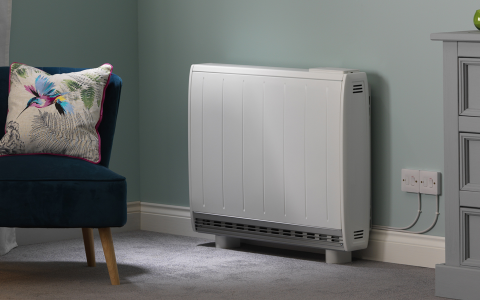
Can the Zeroth Energy System reduce the carbon footprint of HVAC services?

The temperature of the central ambient loop, and utilisation of renewable central plants, means that the innovative Zeroth Energy System can help to significantly reduce the carbon footprint of HVAC services in a multi-occupancy building. Heat losses in the distribution network of high-temperature centralised systems are significantly reduced in these low temperature systems. By specifying the Zeroth Energy System instead of traditional gas boilers or a combined heat and power system (CHP), the Zeroth Energy System can facilitate the application of low carbon energy sources.
Can a move away from gas boilers help reduce the carbon emissions of HVAC?
The Zeroth Energy System is compatible with a variety of central heat plants and can be connected to a district heating network (DHN) if preferred. Removing gas fuelled boilers and CHP systems, and replacing them with renewable central plants, such as air source heat pumps or ground source heat pumps, means that the HVAC services are powered instead by highly efficient technologies that utilise electricity as fuel. SAP10.1 shows that the carbon factor of electricity is 0.136 when compared to the carbon factor of gas at 0.21, allowing for the potential to deliver significant reductions in the carbon impact of the building.

What is the impact of the high energy efficiency of the Zeroth Energy System on HVAC carbon emissions?
When modelled in SAP 2012 with an air source heat pump as a central plant, the Zeroth Energy System was shown to exceed 300% efficiency. This high energy efficiency is achieved via application of renewable plant, and by the innovative design of the ambient distribution network. This feature utilises a central water loop set at 25°C, and individual in-apartment heat pumps which use this loop to deliver hot water, space heating and comfort cooling. The ambient temperature of the water in the central loop reduces thermal inefficiencies that can lead to heat distribution losses in the network by elevating the temperature of the ambient water at the point of use, minimising heat losses into the building envelope and maximising the useful delivery of energy from the plant to the services in the apartments.
More information on how energy efficient HVAC systems can help to address the highest energy demand in modern multi-residential apartments, which is domestic hot water, can be found here.
Another benefit of the highly efficient Zeroth Energy System is that the in-apartment Zeroth Heat Pump can deliver comfort cooling for occupants (with the specification of suitable emitters) using the heat pump reverse cycles. This helps to significantly reduce the CO2 emission of an HVAC system within which cooling is to be specified through the balancing effect of the heating and cooling of apartments in the central loop.
Contact our HVAC specialists to find out how the Zeroth Energy System could reduce the carbon footprint of your HVAC system and increase the energy efficiency of your development.











